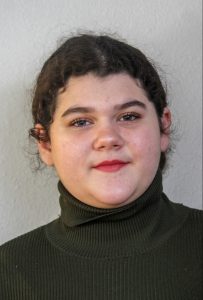Open Book: Making Friends With Robot
A Complex And Meticulous Analysis Of AI In Two Words: It’s Scary

By Anya Nitczynski
For the GPHN
It feels like recently there’s been exponential growth in the world of AI — that’s Artificial Intelligence for those who are just getting their heads around it.
The truth is, various types of AI have been integrated into our lives for decades (think Siri, social media algorithms, even recent space rovers) in a somewhat covert way. Still, the release of language processing services like ChatGPT seemed to create a shockwave.
Three months after the release of ChatGPT, the social media platform SnapChat released an AI software feature that is powered by ChatGPT. SnapChat is used in a similar manner as — and sometimes an alternative to — texting. People send pictures, videos, and chats to each other; it’s a way to keep in touch.
It’s relatively easy to keep Classic ChatGPT out of your life if you would like to. If you don’t access the website, don’t make an account and don’t download the app, it’s easy to forget about. By contrast, the SnapChat AI appears at the very top of all your messages and is impossible to delete or even move further down your list of friends. SnapChat AI users can send pictures, videos, and chats to the AI — communicating with it in the same exact manner as their friends.
My complex and meticulous analysis of this groundbreaking AI development is as follows: It’s scary! An AI feature built into a huge social media platform that a majority of my peers use daily that is unavoidable, undelete-able, and designed to be communicated with and act like a friend . . . is terrifying to me. It already feels like the social and emotional growth of people my age was stunted during the pandemic and returning to normal life and picking up those pieces is hard enough without a robot trying to be friends with us.
This is not to say that all AI is bad or that chatbots are an evil innovation and I doubt any SnapChat users are entirely replacing real life connections with AI.
The general adolescent perspective is lighthearted (it is fun to mess around with this software) but is also one of growing awareness that this reality could sour fast. Some of us are worried AI will kill creativity. We’re worried AI will kill human connection. There isn’t a lot we can do about that except cultivate the creativity and human connections within ourselves and each other.
Anya Nitczynski is a rising junior at Denver School of the Arts. Her column appears monthly in these pages.
